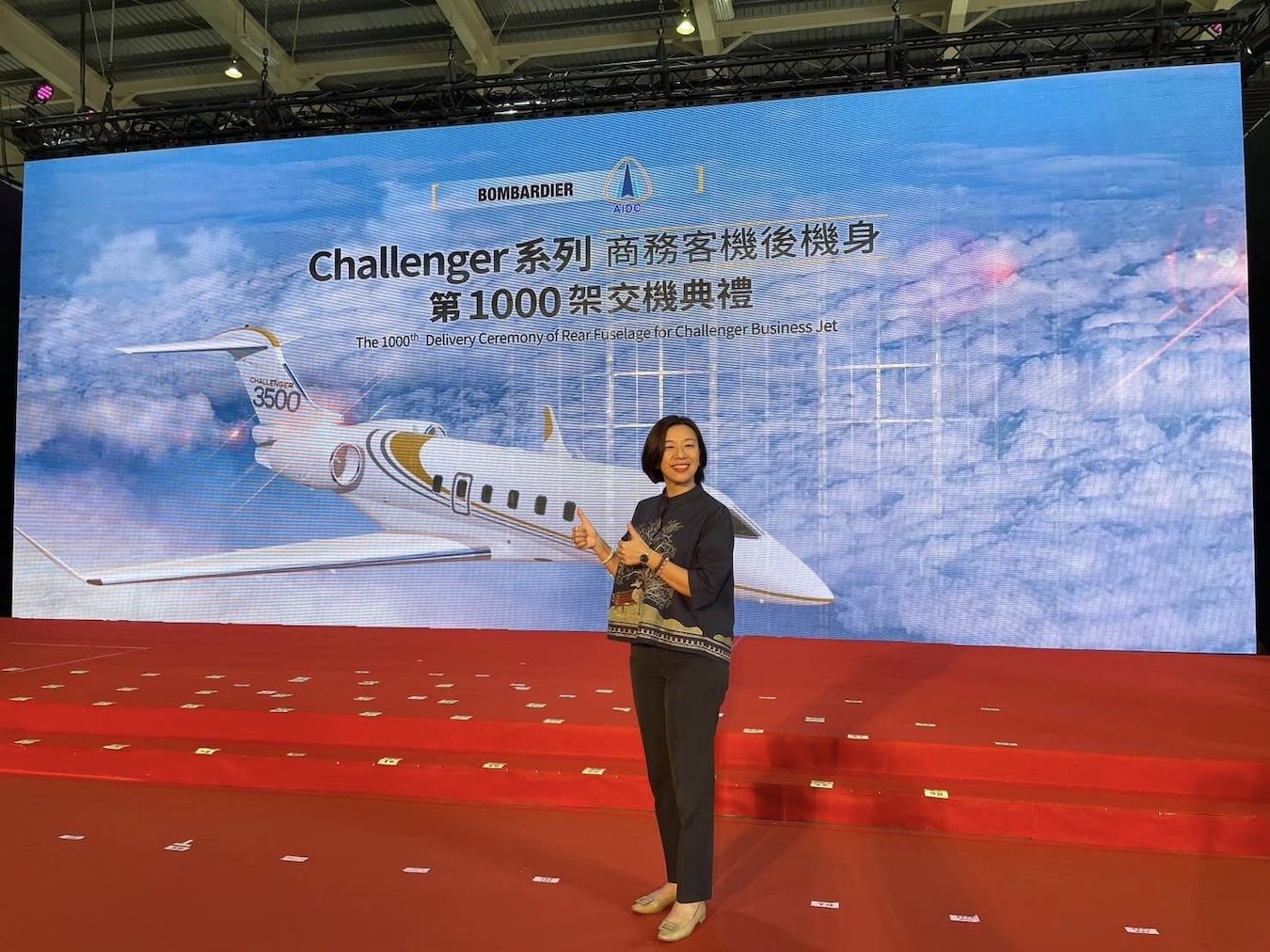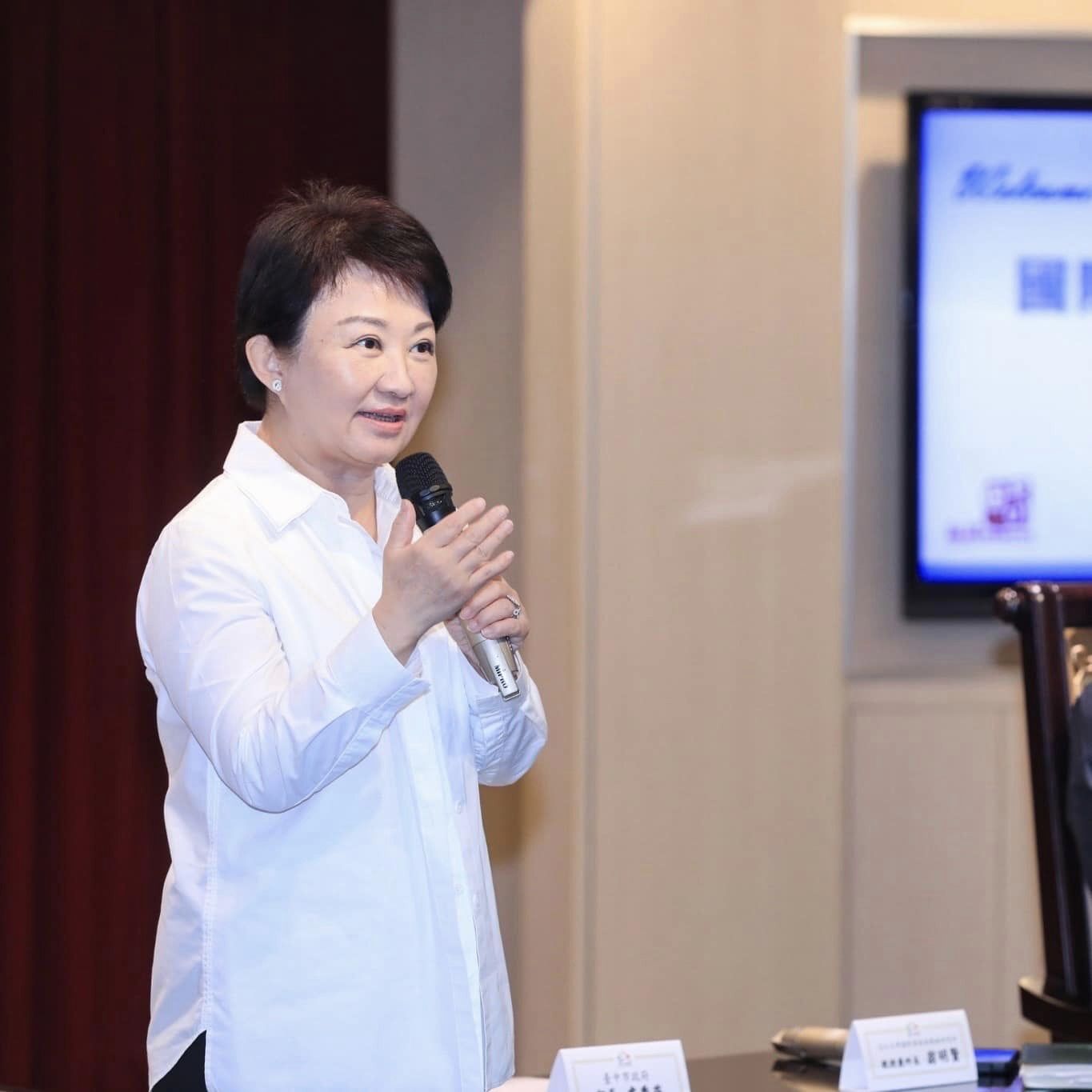by Brian Hioe
語言:
English
Photo Credit: Lu Shiow-yen/Facebook
DPP PRESIDENTIAL CANDIDATE William Lai has hit out at Lu Shiow-yen’s mayoral administration in Taichung over the Blue Line of the Taichung MRT. Lai alleged that the stops along the line were adjusted in order to please “powerful people” in Taichung. This has, in turn, been denied by the Lu administration.
In particular, Lai would be taking aim at the KMT’s mayorship of Taichung under Lu, as well the KMT’s long-standing dominance of local politics in Taichung. The Yen family has proven to be a dominant force in Taichung politics, standing at the intersection of electoral politics, religion, and organized crime. Accusations are that the MRT is located near property owned by the Yen family.
Family head Yen Ching-piao, who served as a legislator for over a decade, was succeeded in his position by his son, Yen Kuan-heng. In turn, Yen now serves as the head of the Dajia Jenn Lann Temple, which organizes the largest religious gathering in Taiwan, the Dajia Mazu pilgrimage. At the same time, the Yen family has long been reputed for ties to organized crime.
 DPP legislator Lin Ching-yi. Photo credit: Lin Ching-yi/Facebook
DPP legislator Lin Ching-yi. Photo credit: Lin Ching-yi/Facebook
Pan-green politicians in Taichung, such as legislator Lin Ching-yi, have criticized the criteria by which stops along the MRT are chosen as opaque. Similarly, accusations against Lu Shiow-yen are that, though the planning process for the Taichung MRT was approved by the Ministry of Transportation and Communications during Su Tseng-chang’s tenure as premier, this was later changed by Lu. Critics point to the increase of the budget for the MRT from 90 billion NT to 160 billion NT under Lu, with delays of more than five years.
For her part, Lu has defended herself by stressing that the central government was involved in the planning for the Taichung MRT’s Blue Line. Minister of Transportation and Communications Wang Kwo-Tsai has denied knowledge of who Lai was referring to and stated that it did not matter if the line was near the property of power families if it served public transport, though has also statedthat the Taichung city government and the central government are in the process of discussing the location of MRT stations.
The allegation that the Taichung city government relocated stations on the MRT is to suggest that MRT stations being located near real estate owned by certain individuals or families aims to significantly increase the value of such real estate. There is usually a spike in the price of real estate and housing near anticipated or announced MRT stations.
This is not the first time that MRT construction has been plagued by such allegations. Indeed, this occurred with regard to the construction process of the Taipei MRT in the years prior to its opening in 1996, and its gradual expansion in the coming decades.
This more generally reflects how the public often does not find the construction process for public infrastructure to be transparent. And, though the DPP has sought to politically attack the KMT in Taichung over the matter, past DPP administrations have been accused of doing the same.
 Taichung mayor Lu Shiow-yen. Photo credit: Lu Shiow-yen/Facebook
Taichung mayor Lu Shiow-yen. Photo credit: Lu Shiow-yen/Facebook
The dynamic between which the DPP-controlled central government clashes with pan-Blue local governments was prominently observed with regard to the COVID-19 pandemic, during which local controlled by pan-Blue governments sought to outdo the central government and accuse it of enaction. This time around, this takes place as a form of political attack before the elections in January. Indeed, it has become relatively common in past years for pan-Blue local governments to allege that the central government distributes more resources to pan-Green local governments–such as regarding vaccine distribution during the COVID-19 pandemic.
Nevertheless, this also reflects how public infrastructure projects can become an arena of political contestation between the pan-Green and pan-Blue camps. That is, in attacking vested political interests in Taichung, the DPP would likely be hoping to repeat past electoral successes. The last several election cycles saw a sudden backlash against the Yen family, with the media proving willing to report critically on the Yen family in a way that they previously shied away from, and Yen Kuan-heng coming under fire for a family mansion built on protected land.
While Lai focused fire on the Lu political administration, Lu is not running this election cycle, but he and the DPP likely hope to make the charges affect local races in Taichung, repeating this beat of previous election cycles. It may not surprise, then, that DPP legislative candidates in Taichung, Hualien, New Taipei, and Changhua announced yesterday an alliance to target “black gold” families with ties to political corruption–among which the Yen family features prominently.

